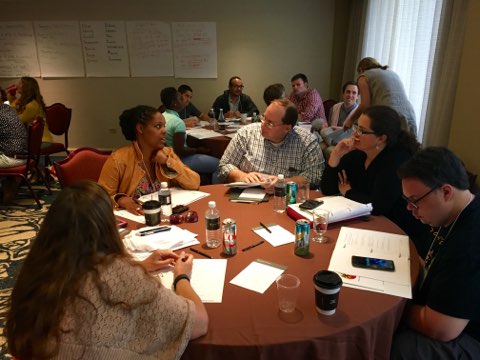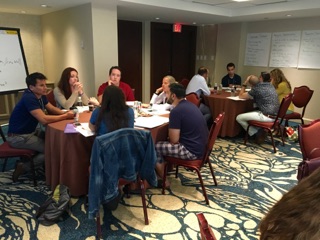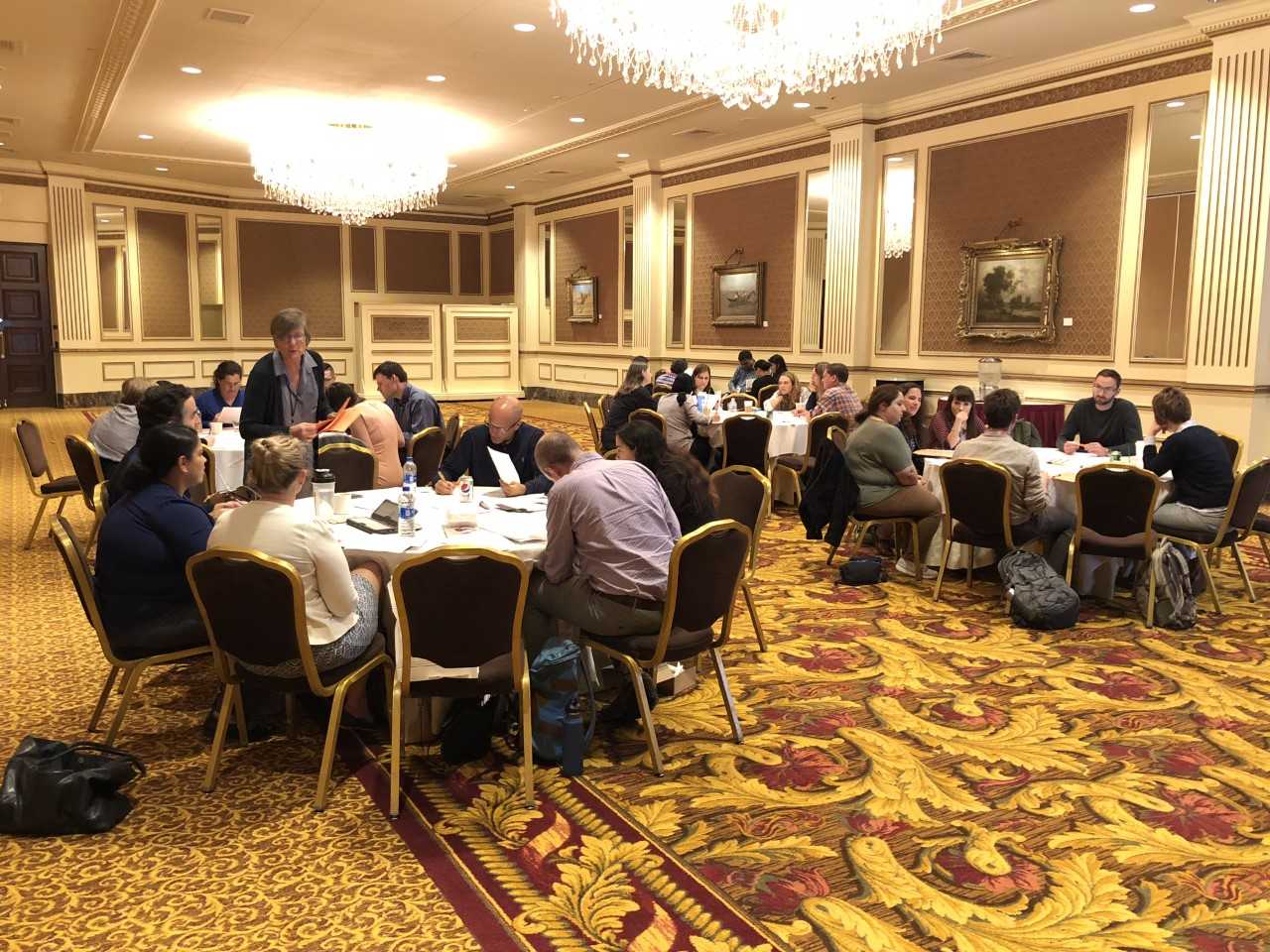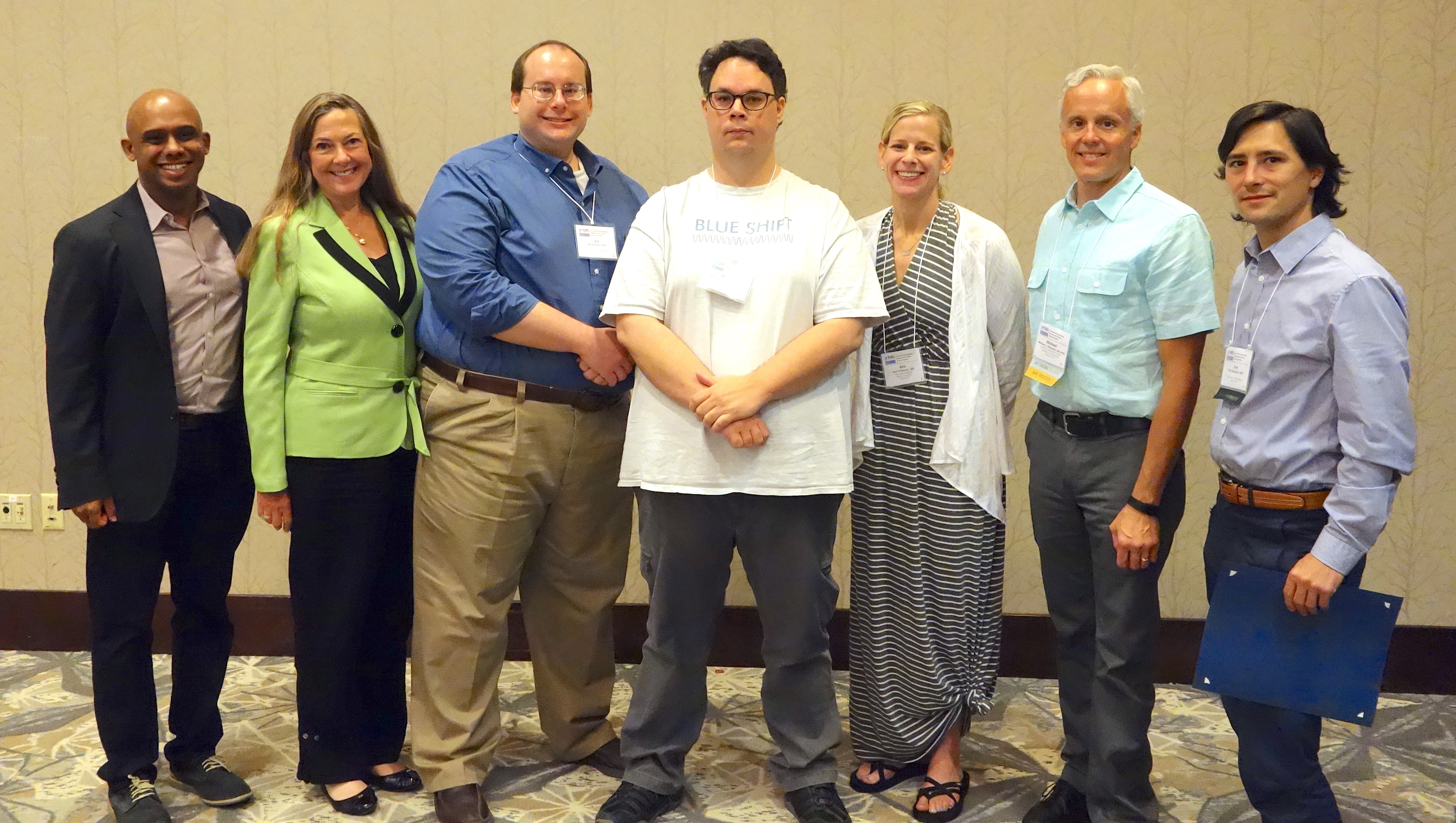Master Educator
Click here to see Dr. Eduardo Humes' AAP Master Educator Program
video testimonial.
.
2025 Master Educator IDEA Fellowship Award Application
Applications for the 2025 Master Educator IDEA Fellowship Award IS OPEN.
Please click here for more information about this award.
Please click here to apply for this award.
Thank you for your interest in the AAP Master Educator Program.
Registration for the 2025 Spring Virtual Master Educator Session
IS CLOSED.
Registration for the
2025 Fall Master Educator Session*
at The Pfister Hotel in Milwaukee, Wisconsin
opens April 20, 2025.
*IN-PERSON ONLY session.
Session details are below.
The topics & information for the 2025 Fall IN-PERSON Session*
SEPTEMBER 9 - 10, 2025
EDUCATIONAL SCHOLARSHIP
&
CURRICULUM DESIGN
*The 2025 Fall Session will be an IN-PERSON ONLY event.
Mission Statement
The Master Educator Program aims to help psychiatric educators develop advanced teaching skills and expertise in educational theory and educational scholarship. Through a combination of interactive activities and reflective exercises, the Master Educator Program provides an evidence-based theoretical framework that informs the psychiatric educators’ practice. The ultimate goal is to support learners in achieving good educational outcomes and foster a positive learning experience. Additionally, the program gives participants the skills to become effective leaders in health professions education in psychiatry and further their career development.


Program Goals
- Enrich graduates’ educational abilities (knowledge, skills, attitudes and behaviors) by helping them to discover ways in which they can link theory and literature with their day-to-day practice as educators.
- Foster creative and innovative learning through engagement and inquiry.
- Enable participants to reflect on their practices as educators and how they situate themselves on the career trajectory of psychiatric educators.
- Support participants’ connections to the AAP community and to other communities of practice, thereby enabling their ongoing professional development, effectiveness, and renewal as psychiatric educators and leaders.
Program Description
The Master Educator Program consists of a three-year curriculum. Courses are offered each fall during the AAP Annual Meeting and repeated virtually each spring. The Master Educator Program may include a required mentored educational project to be completed between sessions, in the near future. Participants do not have to attend the program in consecutive years, however, they have to complete the three-year curriculum consisting of six diversified topics in order to be granted a Master Educator Certificate. Participants do not have to be AAP members, although it is hoped that graduates will remain connected to the community of psychiatric educators.
Two Master Educator workshops are offered during the AAP Annual Meeting each year. Participants have to attend both workshops to receive credit. Program topics rotate annually, with core topics repeated every third year. Topics include:
Core Topics
- Curriculum Design
- Learner Assessment
- Program Evaluation
Rotating Topics
- Educational Theory
- Educational Leadership
- Educational Scholarship
- Change/Innovation
- Creativity in Education
- Leading through Crisis
- Negotiations


Participation Impact
Master Educator graduates identified multiple benefits from participating in the program including:
- Engagement in scholarly activities
- Support to develop collegial relationships
- Advances in educator confidence
- Ability to apply educational theory and evidence to teaching behaviors
- Promotion of current teaching practice linked to educational theory
- Application of teaching skills advancement
- Development, and evaluation of educational curriculum
- Ability to conduct program evaluation.
Blitzstein SM, Seritan AL, Sockalingam S, Randall M, Kablinger A, Lieff S, Azzam A. From Industry to Generativity: The First 12 Years of the Association for Academic Psychiatry Master Educator Program. Acad Psychiatry 2016;40:576-83.

